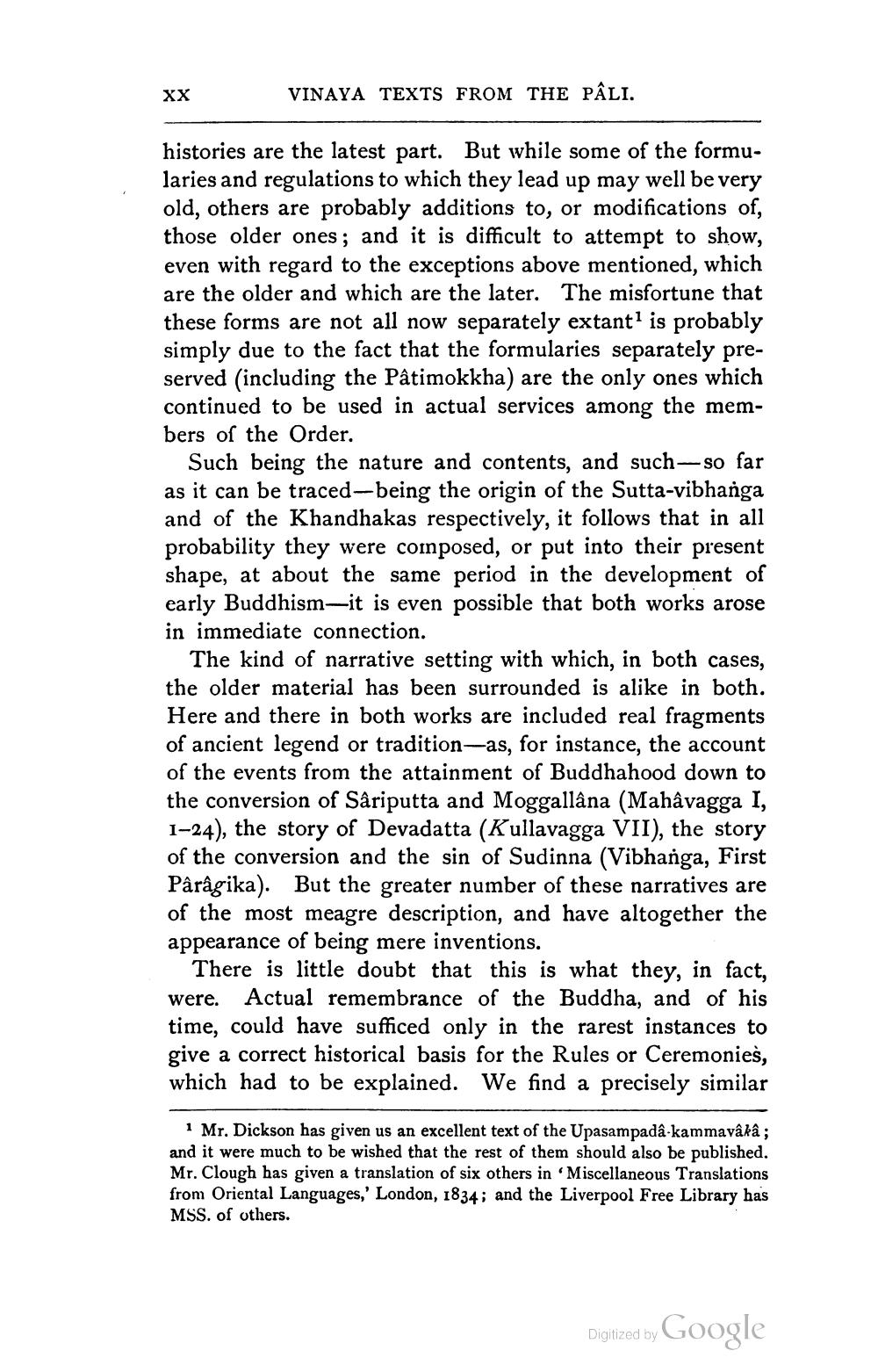________________
XX
VINAYA TEXTS FROM THE PALI.
histories are the latest part. But while some of the formularies and regulations to which they lead up may well be very old, others are probably additions to, or modifications of, those older ones; and it is difficult to attempt to show, even with regard to the exceptions above mentioned, which are the older and which are the later. The misfortune that these forms are not all now separately extant1 is probably simply due to the fact that the formularies separately preserved (including the Pâtimokkha) are the only ones which continued to be used in actual services among the members of the Order.
Such being the nature and contents, and such-so far as it can be traced-being the origin of the Sutta-vibhanga and of the Khandhakas respectively, it follows that in all probability they were composed, or put into their present shape, at about the same period in the development of early Buddhism-it is even possible that both works arose in immediate connection.
The kind of narrative setting with which, in both cases, the older material has been surrounded is alike in both. Here and there in both works are included real fragments of ancient legend or tradition-as, for instance, the account of the events from the attainment of Buddhahood down to the conversion of Sâriputta and Moggallâna (Mahâvagga I, 1-24), the story of Devadatta (Kullavagga VII), the story of the conversion and the sin of Sudinna (Vibhanga, First Pârâgika). But the greater number of these narratives are of the most meagre description, and have altogether the appearance of being mere inventions.
There is little doubt that this is what they, in fact, were. Actual remembrance of the Buddha, and of his time, could have sufficed only in the rarest instances to give a correct historical basis for the Rules or Ceremonies, which had to be explained. We find a precisely similar
1 Mr. Dickson has given us an excellent text of the Upasampadâ-kammavâkâ ; and it were much to be wished that the rest of them should also be published. Mr. Clough has given a translation of six others in 'Miscellaneous Translations from Oriental Languages,' London, 1834; and the Liverpool Free Library has MSS. of others.
Digitized by Google




